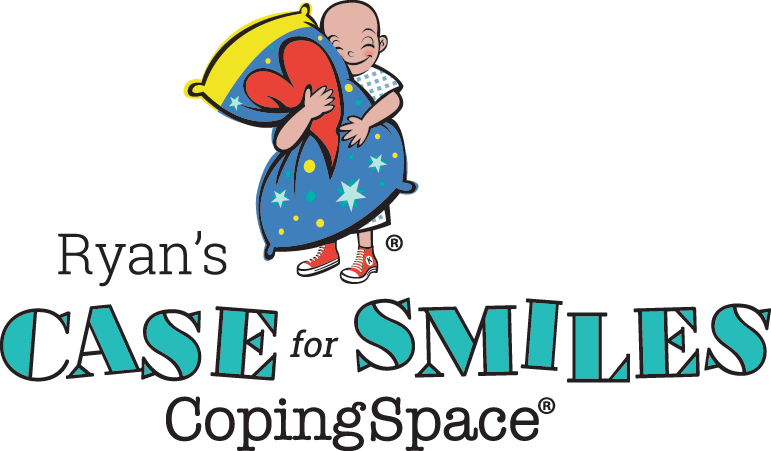BLOG
Therapy for Your Child and You
By Katherine Okonak, LSW, Center for Healthcare Delivery Science, Center for Pediatric Traumatic Stress, Nemours Children’s Health System
 When your child and family experience a serious medical illness or injury, everything changes. It can be hard, it can be scary, it can be overwhelming. You may feel like you don’t know who to turn to or even what to do. Of course, you have the doctors and nurses to talk with about the medical side of things, you may even have family and friends who are there to support you and your family, but sometimes, that isn’t enough. Sometimes, it’s nice to talk with someone who isn’t so involved.
When your child and family experience a serious medical illness or injury, everything changes. It can be hard, it can be scary, it can be overwhelming. You may feel like you don’t know who to turn to or even what to do. Of course, you have the doctors and nurses to talk with about the medical side of things, you may even have family and friends who are there to support you and your family, but sometimes, that isn’t enough. Sometimes, it’s nice to talk with someone who isn’t so involved.
When to Seek Therapy
Therapy can help your family cope with the experience of an illness or injury. When coping with the emotional impact begins to get in the way of enjoying day-to-day activities, it may be time to get some extra help and support.
But therapy for your child? Do they, or even you as a parent, need therapy? Where would you even start?
Help Getting Therapy for Your Child
If you’re considering therapy for you or your child but have questions about finding the right person to work with, what kind of therapy would be best, or what to expect- talking with your medical team or your child’s school is always a great place to start! There may be someone right there at the hospital or school that you and your family can have a therapeutic relationship with, if that’s something you’re open to.
Is there a social worker, psychologist, case manager, or religious leader that you can talk with about whether or not therapy might be right for you and your family? If you don’t know – ask!
Once you’re connected with someone, you can ask things like:
-
- What kind of therapy do you think would be best?
- Do you know of any therapists in the area that you could recommend?
Insurance Coverage for Therapy
Don’t be afraid to ask for help understanding your health insurance coverage for this type of care. Professionals can help you find out what your insurance covers and if you would be responsible for any out-of-pocket costs. If you’re worried about paying for therapy, be sure to talk with your providers about options so that finances don’t have to be a barrier.
If you don’t feel comfortable talking with someone at the hospital or at your child’s school about therapy, you can always call your insurance company. Often, insurance companies have case managers who can help you understand your plan and what’s available. With some insurance companies, you can even tell them that you’re looking for someone who specializes in working with kids, in trauma-informed therapy, or someone who has experience with medical trauma, for example, and they can narrow their search to find exactly that type of therapist.
There is no shame in asking for help. There are many different kinds of therapy and so many particulars with insurance coverage, it can all get really overwhelming! But there are people who want to help you navigate these complexities and get the best possible care for you and your family.
How to Find the Right Therapist for Your Child
Finding the right therapist can take time. It’s an important relationship, and like any relationship, success depends on a good fit. Don’t hesitate to ask questions of prospective therapists. Things like:
-
- What can I expect each time I, or my child, comes in for a session?
- Have you worked with families in the past who have experienced medical trauma?
- Do you have experience working with children?
It can take a few trial sessions to find the right therapist and for your child to get comfortable. But hang in there- it is worth it!
What to Expect from Therapy
Different types of treatment may be used to help your child and family overcome medical traumatic stress, and to cope with challenges of your child’s illness or injury. The details of treatment (like what kind, and for how long) will depend on your family’s unique needs. However, research does suggest that children and families facing traumatic stress reactions, including those related to an illness or injury, are often helped by therapy that focuses specifically on trauma reactions and concerns.
Therapy for Medical Traumatic Stress
Generally, treatment for medical traumatic stress should:
-
- Directly address the traumatic experiences related to illness, injury, or hospitalization, and your child’s reactions to them
- Include you as a parent in the treatment
- Support your family’s needs so that you can best support your child
- Focus on reducing traumatic stress symptoms for the long run, but also on helping your child cope and function better with any current challenges
The specifics of therapy will also differ depending on the type of therapist and the child’s age. For that reason, it’s best to talk with your therapist about the details of the treatment plan. However, some things that kids could expect from therapy are: talking, doing activities, and learning and practicing new skills. Therapy for younger children may focus on drawing, playing, and talking. Older children may focus on talking through their feelings and problem-solving.
Above all, therapy should be a safe space for your child to talk, knowing that what they say is confidential, unless the therapist believes they may be at risk of hurting themselves or others. Working with a therapist can and should be a collaborative relationship helping you, your child, or your family to reach a state of better mental and emotional health.
Additional Therapy Information and Support
For more information on pediatric medical traumatic stress and trauma-informed care, you can visit https://www.healthcaretoolbox.org/, a site maintained by The Center for Pediatrics Traumatic Stress. The Center for Pediatric Traumatic Stress (CPTS) was founded in 2002 to address medical trauma in the lives of children and families and is headquartered at two of the premier children’s hospitals in the country: The Children’s Hospital of Philadelphia and Nemours Children’s Health System.
The Center’s mission is to reduce pediatric medical traumatic stress through:
-
- promoting trauma-informed healthcare
- disseminating evidence-based practices and screening tools to pediatric healthcare providers
- training providers to recognize and address traumatic stress in children
Other Websites on Therapy
You can also find more information on therapy at the following sites:
And of course, CopingSpace.org is always available to support you and your family throughout this difficult time. To learn more about traumatic stress and the emotional impact of an illness or injury, visit the What to Expect page.
Finding a therapist can be overwhelming. But remember, there are people and resources that can help.
**Statements on this blog reflect the author’s personal opinion and do not represent the views of Ryan’s Case for Smiles. They are also not to be viewed as personal medical advice, but rather for the purpose of general knowledge. The reader should speak to their healthcare team, or their child’s, for medical advice.**
 About the Author: Katherine Okanak, LSW, is a licensed social worker who received her Master’s degree in Social Work from the School of Social Policy and Practice at the University of Pennsylvania in 2013. Katherine has a background in hospital-based clinical social work, having worked in Pediatric Hematology/Oncology at Hershey Medical Center before joining the team at Nemours Children’s Health System. She has been working in psychosocial research at Nemours since 2016, and joined the Center for Pediatric Traumatic Stress in 2018. Katherine is passionate about improving the lives of children and families through research and the implementation of evidence-based trauma-informed practices. Katherine lives in central PA with her husband, Brad, 11-month-old son, Anderson, and cat, Zoey.
About the Author: Katherine Okanak, LSW, is a licensed social worker who received her Master’s degree in Social Work from the School of Social Policy and Practice at the University of Pennsylvania in 2013. Katherine has a background in hospital-based clinical social work, having worked in Pediatric Hematology/Oncology at Hershey Medical Center before joining the team at Nemours Children’s Health System. She has been working in psychosocial research at Nemours since 2016, and joined the Center for Pediatric Traumatic Stress in 2018. Katherine is passionate about improving the lives of children and families through research and the implementation of evidence-based trauma-informed practices. Katherine lives in central PA with her husband, Brad, 11-month-old son, Anderson, and cat, Zoey.
